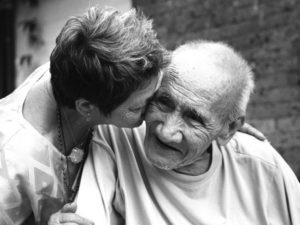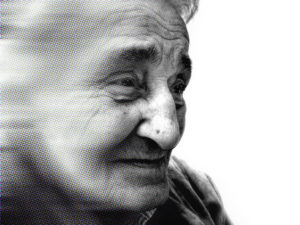
No one likes putting a loved one into a nursing home, but it can be unavoidable at times. In this article, we will be focusing on drugs used in these facilities, specifically antibiotics, and how strict control is needed to maintain a balance when given to nursing home patients.
In a 2015 study, nursing home patients were exposed to a 24% greater risk of adverse events from antibiotics and suffered related illnesses such as gastroenteritis, the development of antibiotic-resistant organisms, as well as allergies, and general medication adverse events.

Antibiotics are prescription drugs that fight infections caused by bacteria. Similar to how the process of neutralizing the SARS-CoV-2 (COVID-19) virus works from the vaccines, antibiotics kill the bacteria or prevent them from copying themselves. This is known as antibiotic resistance.
The most common antibiotics are the following:
-
-
- amoxicillin
- doxycycline
- cephalexin
- ciprofloxacin
- clindamycin
- metronidazole
- azithromycin
- sulfamethoxazole
-
You may be familiar with amoxicillin. Besides normal prescriptions from medical doctors, it is also prescribed by dentists for those who have certain heart conditions such as mitral valve prolapse.
High Antibiotic Use and Its Potential Consequences
Overuse of antibiotics can have the opposite effect of what they were initially designed for. Instead of killing the bacteria, it can make the bacteria stronger and subsequently resist the exact drug that is trying to neutralize them.
Residents in nursing homes with high antibiotic use have a 24% higher risk of an antibiotic-related adverse event, which is an unexpected medical problem that occurs during prescription drug treatment according to a study published in JAMA by the Institute for Clinical Evaluative Sciences, located in Ontario, Canada.
The researchers studied more than 100,000 residents in more than 600 Ontario nursing homes and found a 10-fold variability in antibiotic use. The range was from as low as 20 antibiotic days per 1,000 resident days to as high as 200 antibiotic days. Antibiotic-related issues usually involve the digestive system and can include C. difficile, which is an infection of the large intestines, diarrhea, or gastroenteritis. Also, allergic reactions have been recorded.
“Our findings show that these adverse outcomes affected not only residents who directly received antibiotics, but also those residents who did not directly receive antibiotics because infections like Clostridium difficile and antibiotic-resistant bacteria can be transmitted between patients,” lead author Nick Daneman, MD, MSc, an adjunct scientist at ICES, said in a statement.
You are Not Alone!
Even residents not receiving antibiotics could be at risk of these consequences. One of the antibiotic-related harms is antibiotic-resistant organisms. A condition where bacteria develop the ability to overtake the drugs that are designed to neutralize them. That means the germs are not killed but continue to grow, which not only affects the recipient but also can indirectly affect others besides the patient.
Overall, 13.3% of residents in a nursing home with high antibiotic use experience adverse antibiotic-related events compared with 11.4% of residents in a low antibiotic-use nursing home.
“Antibiotic use is highly variable across nursing homes; residents of high-use homes are exposed to an increased risk of antibiotic-related harms even if they have not directly received these agents,” the authors concluded. “Antibiotic stewardship is needed to improve the safety of all nursing home residents.”
Taking Extra Care!
Some nursing homes are notorious for over-medicating patients, so those of you who have a loved one in a home should be vigilant when bringing a patient into a facility and while the patient is already living there.
Case in Point
A nursing home on Long Island recently had patients become infected with Covid-19. This baffled the staff as this facility maintained strict Covid regulations. Everyone entering the home had to wear a mask, show their vaccination card, be Covid tested (via rapid diagnostic), be checked for temperature, and be photographed. Yet, patients still got infected, so those facilities with even the best intentions still can be subject to unexpected circumstances. If you would like recommendations for quality nursing homes in New York State, please feel free to contact us.





 A common question among family members with senior loved ones is when is the best time to move the elderly from the home to a nursing home? While most senior persons prefer to live the remaining years after the retirement in their own home, sometimes their health conditions necessitate moving to a nursing facility.
A common question among family members with senior loved ones is when is the best time to move the elderly from the home to a nursing home? While most senior persons prefer to live the remaining years after the retirement in their own home, sometimes their health conditions necessitate moving to a nursing facility. Senior persons that are in advanced stages of
Senior persons that are in advanced stages of  A nursing home is a right option when the senior who is leading a post-retirement life is mostly alone at home. Nursing homes offer plenty of opportunities for the residents to lead a socially active life. Residents of the nursing home lead a satisfying life while taking part in a number of activities that are organized by the nursing home administration.
A nursing home is a right option when the senior who is leading a post-retirement life is mostly alone at home. Nursing homes offer plenty of opportunities for the residents to lead a socially active life. Residents of the nursing home lead a satisfying life while taking part in a number of activities that are organized by the nursing home administration. 